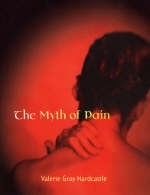
The Myth of Pain
Seiten
1999
MIT Press (Verlag)
978-0-262-08283-9 (ISBN)
MIT Press (Verlag)
978-0-262-08283-9 (ISBN)
- Titel ist leider vergriffen;
keine Neuauflage - Artikel merken
Offering a biologically-based complex theory of pain processing, inhibition and sensation, this text uses the theory to make arguments such as psychogenic pain not existing and that a lack of knowledge about fundamental brain function prevents distinguishing between mental and physical causes.
Pain, although very common, is little understood. Worse still, according to Valerie Gray Hardcastle, both professional and lay definitions of pain are wrongheaded--with consequences for how pain and pain patients are treated, how psychological disorders are understood, and how clinicians define the mind/body relationship.Hardcastle offers a biologically based complex theory of pain processing, inhibition, and sensation and then uses this theory to make several arguments: (1) psychogenic pains do not exist; (2) a general lack of knowledge about fundamental brain function prevents us from distinguishing between mental and physical causes, although the distinction remains useful; (3) most pain talk should be eliminated from both the folk and academic communities; and (4) such a biological approach is useful generally for explaining disorders in pain processing. She shows how her analysis of pain can serve as a model for the analysis of other psychological disorders and suggests that her project be taken as a model for the philosophical analysis of disorders in psychology, psychiatry, and neuroscience.
Pain, although very common, is little understood. Worse still, according to Valerie Gray Hardcastle, both professional and lay definitions of pain are wrongheaded--with consequences for how pain and pain patients are treated, how psychological disorders are understood, and how clinicians define the mind/body relationship.Hardcastle offers a biologically based complex theory of pain processing, inhibition, and sensation and then uses this theory to make several arguments: (1) psychogenic pains do not exist; (2) a general lack of knowledge about fundamental brain function prevents us from distinguishing between mental and physical causes, although the distinction remains useful; (3) most pain talk should be eliminated from both the folk and academic communities; and (4) such a biological approach is useful generally for explaining disorders in pain processing. She shows how her analysis of pain can serve as a model for the analysis of other psychological disorders and suggests that her project be taken as a model for the philosophical analysis of disorders in psychology, psychiatry, and neuroscience.
Valerie Gray Hardcastle is Assistant Professor of Philosophy at Virginia Polytechnic Institute.
| Erscheint lt. Verlag | 4.1.2000 |
|---|---|
| Reihe/Serie | Philosophical Psychopathology |
| Zusatzinfo | 23 |
| Verlagsort | Cambridge, Mass. |
| Sprache | englisch |
| Maße | 152 x 229 mm |
| Gewicht | 612 g |
| Themenwelt | Geisteswissenschaften ► Philosophie |
| Geisteswissenschaften ► Psychologie ► Verhaltenstherapie | |
| Medizin / Pharmazie ► Medizinische Fachgebiete | |
| ISBN-10 | 0-262-08283-7 / 0262082837 |
| ISBN-13 | 978-0-262-08283-9 / 9780262082839 |
| Zustand | Neuware |
| Haben Sie eine Frage zum Produkt? |
Mehr entdecken
aus dem Bereich
aus dem Bereich
Verhaltensanalyse - Behandlungsplan - Bericht an den Gutachter
Buch | Softcover (2022)
Kohlhammer (Verlag)
CHF 48,95
psychodynamisch denken – verhaltenstherapeutisch handeln
Buch | Hardcover (2023)
Schattauer (Verlag)
CHF 67,20


